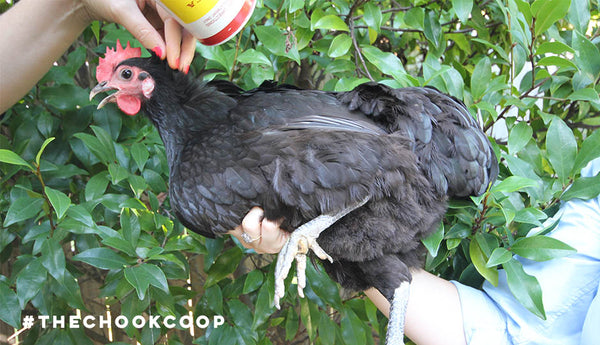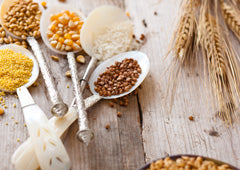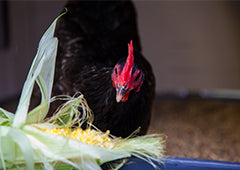It’s all too easy to overindulge your girls occasionally- we will admit, seeing our flock come running over, eyes wide, when we have a treat in our hand is a real delight! However, while the odd treat here and there is harmless, there can be too much of a good thing.
Just like in humans, if chickens are leading an unhealthy lifestyle, filled with too many treats and not enough exercise, there is a real chance that they can become overweight- better known in poultry as Fatty Liver Hemorrhagic Syndrome. Which unfortunately can spell serious trouble for your chickens if it is not acknowledged and attended to.
Most backyard chickens live a relatively healthy lifestyle, and it is very unlikely that your flock will ever suffer from this syndrome, however, when it comes to our feathered friends health- it’s better to be safe than sorry!
So what exactly is Fatty Liver Hemorrhagic Syndrome, how is it caused, how do I know if my chickens have it, and how can it be avoided- read on to make sure your flock isn’t struck down with a case of the chubby chicken!
What is Fatty Liver Hemorrhagic Syndrome?
Fatty liver hemorrhagic syndrome is basically obesity in chickens. It can be described as excessive fat in the liver of prolific laying hens, associated with varying degrees of hemorrhage. Over time, fat will deposit in the liver, causing it to lose its structural strength and become enlarged. This can result in the liver hemorrhaging, which can unfortunately lead to death.
How is it Caused?
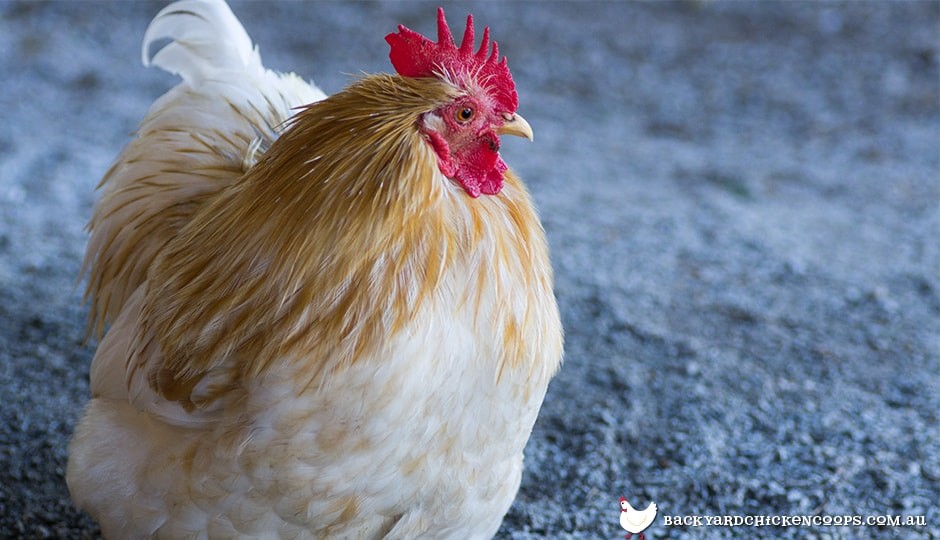
This syndrome can become prevalent among your flock due to a number of factors- hormonal, nutritional and physical-unfortunately, it is us who are often to blame! Quite simply put- if your girls are eating too much of the bad stuff and not getting enough exercise they are going to gain weight, which can quickly develop into fatty liver hemorrhagic syndrome. Foods with a high caloric index, excessive fatty foods and a lack of biotin in the diet, are the number one contributors to this serious disease, and while it is not contagious, due to the nature of your chickens all indulging in the same diet, it is not uncommon to see an entire flock suffer fatty liver hemorrhagic syndrome. For many backyard flocks free-ranging is not an option, and without a spacious coop and run, chickens may not get the physical activity they need to maintain a healthy weight. This, coupled with a diet laden with treats, can fast track a chickens road to obesity.
What does this mean for my Chickens?
As mentioned previously, the worst case scenario of Fatty Liver Hemorrhagic Syndrome is the liver of your chicken hemorrhaging which can unfortunately result in death. It can also lead to lethargy and tiredness, egg production will often suffer, and obese males are likely to experience fertility problems.
How do I Know if my Flock is Suffering?
To check that your bird is a healthy weight, when handling them, feel for their breast bone. It should be detectable under a reasonable layer of fat, however if you are finding it difficult to locate, they may overweight- which can lead to fatty liver hemorrhagic syndrome. Other signs and symptoms include:
- Pale comb
- Egg laying is slow/ceased
- Fluffed up appearance
- Not moving around/staying in one spot
- excess abdominal fat
How Can I Avoid or Treat It?
If you have good reason to believe that your chicken could be overweight, or if you want to avoid your flock being struck down with a weighty problem, it is best to follow a few rules regarding their daily diet and exercise regime.
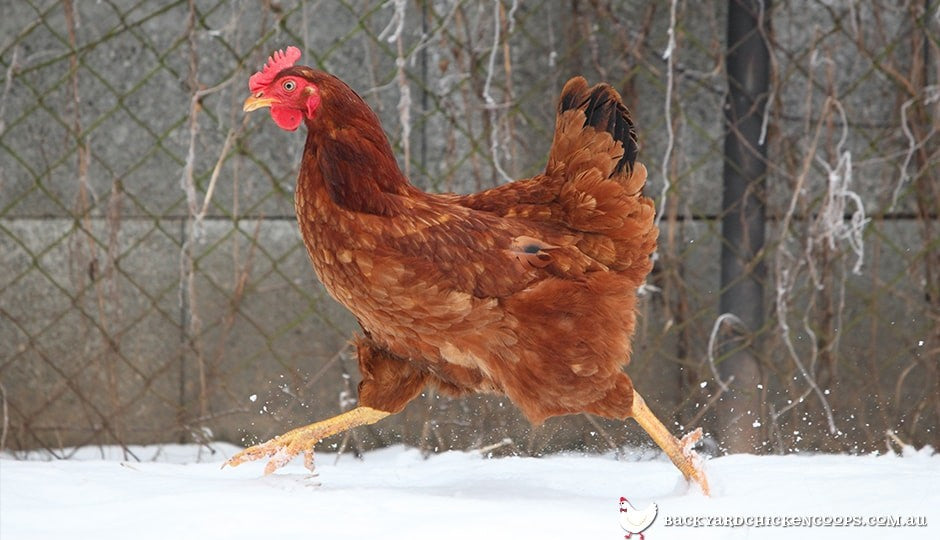
- Feed a balanced diet
To keep your chickens weight in check, they should be fed a nutritious and well-rounded diet, packed with essential nutrients- being sure to avoid feeding your chickens high fat and high calorie foods too regularly. A good quality chicken feed high in protein, and rich in other essential nutrients (the most important and their functions can be found here), should help your girls maintain a healthy weight. It is also important to ensure that the amount they are fed is controlled- do not give them access to feed at all times. While most chickens know when enough is enough, some have eyes that are bigger than their bellies- especially when particularly yummy treats are involved! Food scraps from the kitchen can still be given to your girls, just ensure you make a point of choosing only heart healthy foods that won’t affect their weight, and be sure to ration the portions they are fed. Foods rich in biotin will assist with keep fatty liver hemorrhagic syndrome at bay, so be sure to add some of these to your girls diet if they’re struggling with their weight:
- Broccoli
- Cabbage
- Cauliflower
- Peas
- Berries
- Oats
- Spinach
- Ensure they are getting adequate exercise
If your chickens are able to free-range regularly, this should be enough to satisfy their exercise needs. The same goes for those backyard flocks that are housed in a coop with roomy and spacious run- your chickens will run back and forth all day! However if you fear that your chickens aren’t able to get enough of the physical activity they so need, you can encourage exercise with live crickets- watching them crazily chase after them will give them an extra boost, and it’s great fun to watch! Also try to make sure there are plenty of perches and coop additions, such as stumps etc. that will give them reason to explore and hop about!
- Limit Treats
As much as we love spoiling our girls, excessive treats- even the ones we consider to be healthy, have to be limited in order to keep your girls at the correct weight. Just like with humans, moderation is key- indulging your chickens every now and then is perfectly okay, and encouraged, just know when enough is enough- we know it’s hard when their little faces light up when they think a treat is coming!
If you’re anything like us, you love and adore your chickens, and only want what’s best for them. That is why it’s important that you provide them with the healthy lifestyle they deserve- feeding them a well-balanced nutritious diet, and plenty of space to stretch their legs and flap their wings. If you can give them this, in return they will give you love and affection (and eggs!), for many years to come, and fatty liver hemorrhagic syndrome will just be a fancy big poultry term you never have to worry about!
Make sure that you've got the right knowledge you need to raise a happy, healthy flock at all ages. Did you know 67% of chicken keepers surveyed experienced a chicken health or behaviour issue in the first 12 months that they didn’t know how to handle?
But don’t worry! Our feathered friends over at Chickenpedia have created a Chicken Healthcare Course. It is a comprehensive online course that covers everything you need, including what to look for in an unhealthy chicken and how to support your egg-laying hens to optimal health. All of their courses are really well structured, which is why I highly recommend them to all of my readers! From raising baby chicks to feeding to behavior, you’ll find valuable information that’ll give you the knowledge and confidence to successfully look after your chickens.
Check out Chickenpedia today. As a member, you will also get access to the ALL of their chicken courses!





